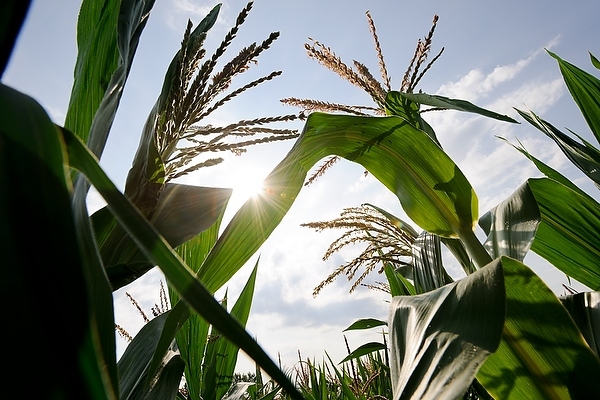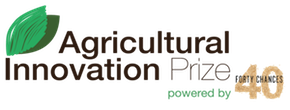Student teams from across the nation compete for Agricultural Innovation Prize

Student teams from around the nation will compete at the University of Wisconsin–Madison April 25-26 for the Agricultural Innovation Prize, for addressing challenges in food systems.
The University of Wisconsin–Madison will host 30 teams of undergraduate and graduate students from across the country this week for the national Agricultural Innovation Prize.
The competition is run through the Wisconsin Institute for Discovery (WID), powered by the 40 Chances program of the Howard G. Buffett Foundation and run in cooperation with the U.S. Department of Agriculture.
Since its call for proposals in October 2013, the prize has received 250 student submissions addressing challenges in 21st century food systems such as food scarcity and availability, distribution and environmental quality. The Howard G. Buffett Foundation is funding the competition, offering $240,000 in total prizes. The top proposal will receive $100,000 — the largest award for an agriculturally focused student contest.
On Friday, April 25, from 8:45 a.m. to 3 p.m.; and Saturday, April 26, from 8:30 a.m. to 3 p.m., members of the media and public are invited to attend the official competition at the Wisconsin Institutes for Discovery, 330 N. Orchard St. Winning proposals will be announced at an awards ceremony at 2:15 p.m. on Saturday, April 26.

The event allows students, competition judges, experts from a range of backgrounds and the public to explore finalists’ projects and larger ideas in business, science and society through a combination of presentations, talks and a panel discussion. More information can be found here.
For a complete list of finalists, visit the Ag Prize website.
Among the 30 finalists, four competing teams are based out of UW–Madison, including “Drsti,” “Mighty Mealworm,” “Monitag” and “W2E Slurry Services.”
Drsti: Promoting “sight” through food
Bacteriology graduate students Chris Johnson and Mary Pitassi are genetically modifying bacteria to combat vitamin A deficiency, a public health problem that negatively affects 250 million children worldwide, according to the World Health Organization.
The team’s company “Drsti,” which translates as “sight” in Hindi, focuses on delivering beta carotene — what the body needs to produce vitamin A — through modified bacteria in yogurt products. Johnson and Pitassi are focusing on developing the bacteria for markets in India, where vitamin A deficiency causes blindness and even death in children and pregnant women.
“The beauty of something like this is that this is a product that people in India would consume as a matter of course and would consume everyday,” says Pitassi.
Mighty Mealworm: “Small bugs, big gains”
To improve food security in parts of sub-Saharan Africa most affected by drought and climate change, Ag Prize finalists and graduate students Rachel Bergmans and Valerie Stull are developing a program to equip communities in Zimbabwe to produce edible mealworm powder.
Working in an area where both have focused their studies, Bergmans and Stull are refining the process and forming connections with women’s cooperatives to introduce the program.
The team chose mealworms because of the insects’ appetite for a variety of foods, ability to survive on little water and their role in recycling nutrients and waste into high quality protein — about 40 percent protein by weight (for reference, chicken is around 30 to 35 percent).
“Eating mealworms is strange and foreign to us in Western cultures, but in fact, it’s not taboo in other places, it’s a staple in some diets,” says Stull. “A project like this can really empower people financially and give them options and a food source year-round while recycling waste.”
Monitag: A tag to monitor food spoilage
Four graduate students are developing a high-tech tag to provide a “temperature history” of foods as they navigate from production to store — a problem that leads to approximately $14.1 billion worth of loss from spoilage and outdating, the group says.
Biological systems engineering graduate students Lin Lu and Yi-Cheng Wang are refining a patent-pending nanotechnology originally developed at UW–Madison and teamed up with life sciences communication graduate students Leona Yi-Fan Su and Kristin Runge and recent business graduate Wesley Lee to market the product.
“It is essentially going to be a tag that you apply to the shipping container,” Runge says. “Then, as it moves through the channel, we’ll be able to tell by looking at the color of the tag from the nanotechnology in the gel, what temperature it’s been exposed to, a record of whether it’s been heated up too much or left out too long.”
W2E Slurry Services: Biogas on a mission
After graduate students and Ag Prize finalists Aleia McCord and Sarah Stefanos first piloted their biogas system in Uganda, they noticed many communities had difficulty adopting it because of limited access to water.
Altering the process to not require water, the team has created a biogas system for water-stressed areas, using a cement vessel that transforms food waste and human excrement into a high quality fertilizer product and produces methane as a by-product.
The group says the methane can serve as a renewable energy source and the system can help improve public sanitation.
“In Uganda, we’re looking at immediate market of 400 people, with the potential to expand rapidly,” says McCord. “We’re proud to develop the project at Wisconsin and to benefit from working cross-cultures and internationally to share the impact of this beyond the state.”
